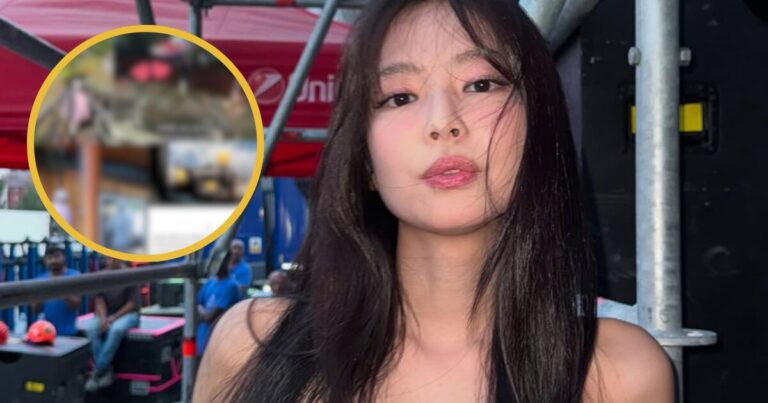BTS’ RM on K-pop’s intense trainee system
BTS is a third-generation K-pop boy group that rose to fame when the genre was popular among a niche audience. Unlike today’s K-pop groups, who start headlining tabloids and giving interviews from day one of debut, groups like BTS, EXO, GOT7, TWICE, among others, climbed up through raw variety shows that captured the real grind which included living in cramped dorm rooms, training without proper shoes, struggling to meet daily needs, and sometimes, not even being able to grab a proper meal. All of that still exists today, but now, the audience doesn’t get to see all of it. In this interview with Harper’s Bazaar, RM was asked about something everyone talks about but not everyone answers honestly: the intense, cutthroat K-pop trainee life. The interviewer asked RM, “K-pop stars go through years of intense training under a highly competitive survival system, and even after debut, they continue to push themselves to the limit. What are your thoughts on this system?”
Story continues below this ad
Namjoon answered, “My company doesn’t like it when I answer questions like this, because I do acknowledge parts of it.” This isn’t the first time the K-pop star has spoken bluntly on the topic — he had said something similar during his album launch before enlisting in the military. He added, “Some reporters are going to write headlines like, ‘RM calls it a horrible system that destroys young people!’ But I think that system has, in its own way, played a role in shaping this unique industry.”
Also read: BTS 2025 world tour plans: HYBE CEO reveals why comeback can’t be rushed despite financial hit
K-pop’s obsession with perfection
In the K-pop industry, protecting an idol’s image is their agency’s priority — presenting them like perfect human beings who don’t date, don’t smoke, and have no controversies is their primary motto. RM acknowledged this but also explained the reasons behind the same. The interviewer asked if the obsession with perfection, youth, and constant competition in K-pop was something specific to Korean culture, and here RM spoke about the West’s understanding of Korea, and said that Koreans have worked hard to become one of the prominent cultural leaders in the world.
He said, “Westerners don’t understand. Korea is a country that was invaded, devastated, and then divided into two. Just 70 years ago, we had nothing. We were a country that needed help from the IMF and the UN. But now, we’re a nation the whole world is watching. How was that even possible? How did this happen? It’s because people worked like crazy to move forward.”
Story continues below this ad
He explained how people from countries like France or the UK, who once established their colonies in other countries, come to Korea and criticise the country’s culture by calling their life “stressful.” But, for RM, the same hard work and pressure is what built modern Korea. “But those things are what it takes to make it. And they’re also what makes K-Pop so interesting,” he said.
He admitted there’s a grey area—not everything about the system is perfect. Fast growth comes with downsides. But still, K-pop is now seen as a “premium label,” something that means quality, built by the struggles and efforts of idols past and present. Labelling it as a seal of quality, he added, “It might be frustrating that Spotify lumps everything we do under K-pop, but the effect is undeniable. It’s a premium label, built on the achievements of those who came before us.”











